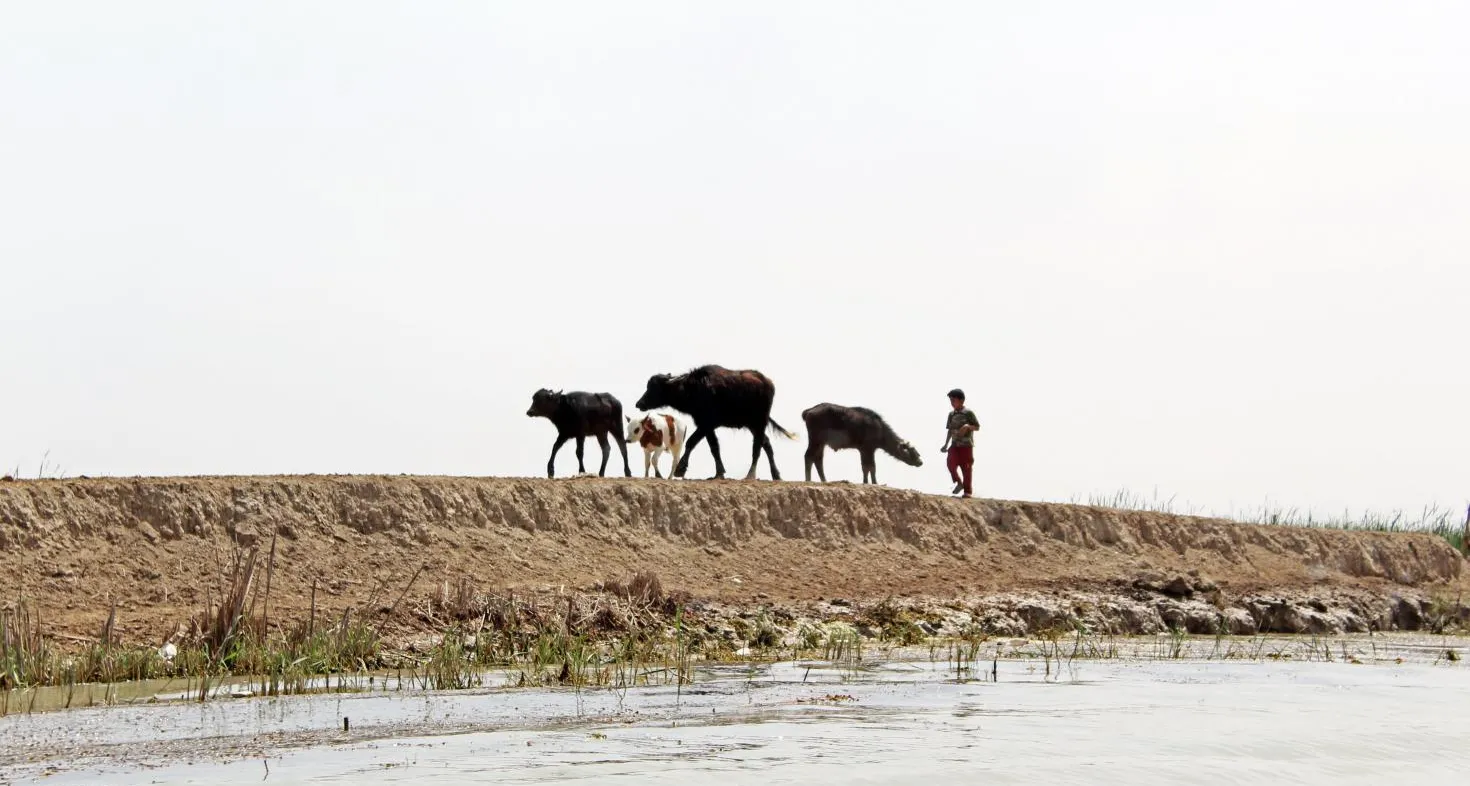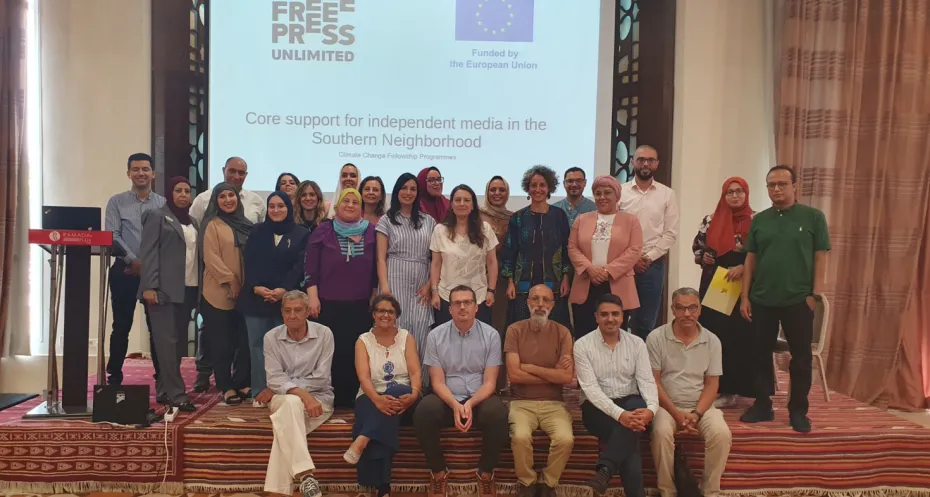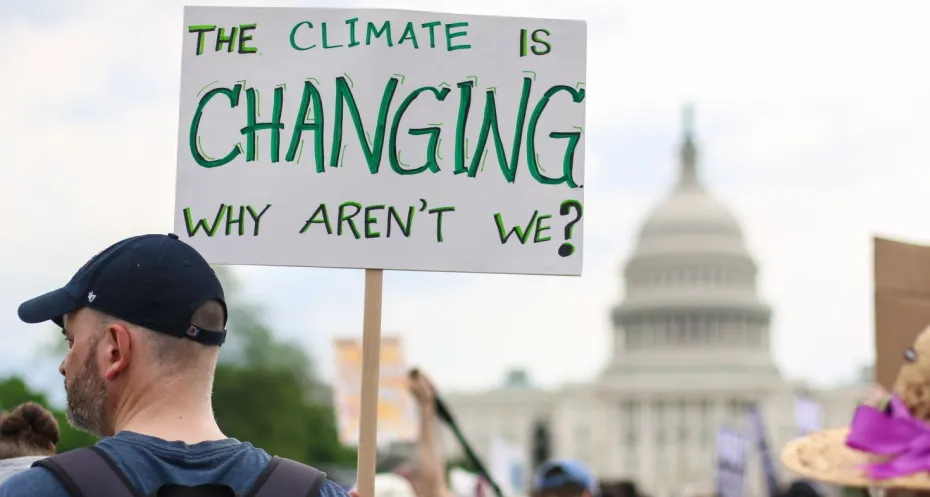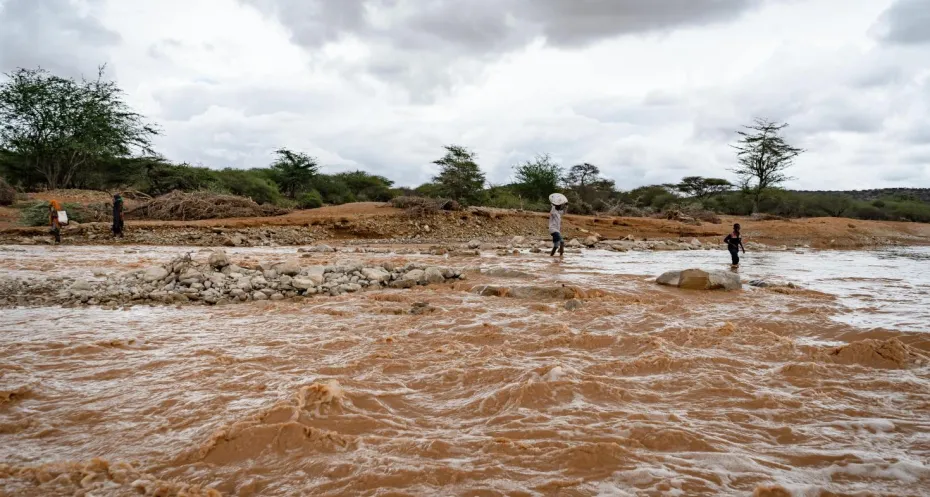
Exploring the added value of climate journalism for Iraqi society
On 17 May 2021 Free Press Unlimited organised a webinar on the question: How can Climate journalism increase resilience, peace and stability in Iraq? Journalists, consultants and media outlets from all over Iraq and close-by regions were present to discuss this topic.
Scroll down to the bottom for this article in Arabic.
Free Press Unlimited is partner of the Planetary Security Initiative (PSI) consortium. In this consortium we work together with Iraqi journalists and media outlets to create innovative media productions on the impact of climate change in the area. Focus points are the effect on water levels and the emergence of conflict. These productions are not just pointing out the problems, but are based on finding solutions and engaging with both local communities affected by climate change and decision makers.
Exchanging views and knowledge in a webinar
In order to understand the local dynamics of journalism about climate change and its effect on the Iraqi society, Free Press Unlimited organised a webinar.
Boris van Westering, Sr. Program Coordinator at Free Press Unlimited and moderator of the session: “In a region where war and conflict dominate the daily headlines, its almost a luxury for journalists to explore coverage about the most pressing social issues of our time, climate change.”
The webinar was opened by journalist and Free Press Unlimited consultant Khaled Sulaiman, he sees there is a new generation of journalists in Iraq, who see the importance to work on the topic of climate change. Sulaiman: “The question is: how can we, as journalists, receive information about climate change and then convey this information to society? The challenge is to translate complex academic data and statistics about climate change into a human story which also gives solutions on how people can deal with it. This is our biggest challenge that we try to overcome with the PSI Journalism production fellowship of Free Press Unlimited.”
The webinar explored three different topics that journalists need to take into account when engaging with the climate story. In this article we share the main take-aways from every topic, given by the different speakers.

Why should journalists in Iraq look into the data and research related to climate change?
“Climate change has a destabilising effect on the local communities in the Middle Eastern region and could lead to social crises and even war. The deterioration of the climate and natural resources due to rising temperatures and reduced rainfall in our region, puts great pressure on the supply of drinking water, the agriculture, and food security.
Up until now, journalists and media in the Middle East have not been investing time in conducting research and understanding the topic better, so that they can use the right terminology and language to inform local communities, or involve civil society and put pressure on decision makers. My advice to the journalists out there is to become more pro-active on climate change related topics, not just when a specific climate crisis happens, to read more and look for primary sources, and reach out to civil society to increase the level of urgency together. This way decision makers are put under more pressure to act on mitigating the negative effects of climate change.”
Rana El Hajj, Climate Change and Environment Program Manager at Issam Fares Policy institute, Beirut

How are local communities affected by climate change and what can they expect from journalists?
“The Iraqi Marshes (a wetland in southern Iraq, red.) suffer greatly from climate change and pollution. There is little awareness within the local population on how they contribute themselves to the climate problems with over-fishing and hunting. There is a role for journalists to inform them on how they can reduce their negative effect on the climate, and help restore the natural balance in those areas. Another duty of journalists is to give a voice to people who’s health is affected by big polluters, and make sure that they are held accountable.”
Sanar Hasan, Journalist in Iraq
“Water shortage is affecting the Marshes and the local communities quite significantly. In recent years, journalists have drawn more attention to local communities and how they are affected by reduced water levels. Unfortunately too many immediately blame Turkey or Iran for the droughts because of the dams, rather then looking at what happens in Iraq that might cause droughts and rising temperatures. Journalists should tell more stories of what has been done and achieved so far related to climate change, rather then making abstract and technical stories. It would be good if journalists also look at solutions to mitigate the threat of water shortage. We need to be informed and prepared!”
Jassim Al Assadi, Managing Director of the Chibaish office of Nature, Iraq

How should media owners and publishers take on climate stories and make time for journalists to investigate and develop professional skills in this area?
“Climate stories are often very academic, dry or dull, and are not inviting to read for the audience. The audience needs to get a feeling with the subject to be able to engage with it. As a digital media outlet it is important to look at how you can present the content in an interactive way – for example with videos, info-graphics and illustrations. A powerful image is always more clear than text. Droughts affect people, so a small human story angle to tell a larger story is also a good idea.”
Diana Moukalled, Co-founder of DarajMedia, Lebanon
“Something we need to consider is that in Iraq the media outlets are highly politicised and the Iraqi population often sees the media as their enemy. To turn the tide and give guidance to the media outlets, we are in need of clear editorial policies or guidelines on how to cover stories related to climate change, and its effect on local communities. Training and preparing journalists in how to publish stories about climate change, and how to get access to reliable data in support of these stories, is also needed.”
Salam Omer, Editor in Chief of KirkukNow, Iraq
How to move forward
The webinar put forward how important it is for journalists to understand scientific data and statistics, and translate this data into a human journalistic story combined with solutions. Editors in chief are crucial in making sure that stories related to climate change get enough space on the media platforms. In their stories, journalists should empower local voices and vulnerable communities. Besides that, cross boarder collaborations between networks of journalists dedicated to the topic of climate change need to be stimulated, as climate change does not have boarders.
For an Arabic translation of this article click here.
Watch the full webinar here
(To watch the webinar in Arabic click here)
Photo in header: A Boy with Buffaloes in Marshes, South of Iraq by Mohammed Alsoufi.



